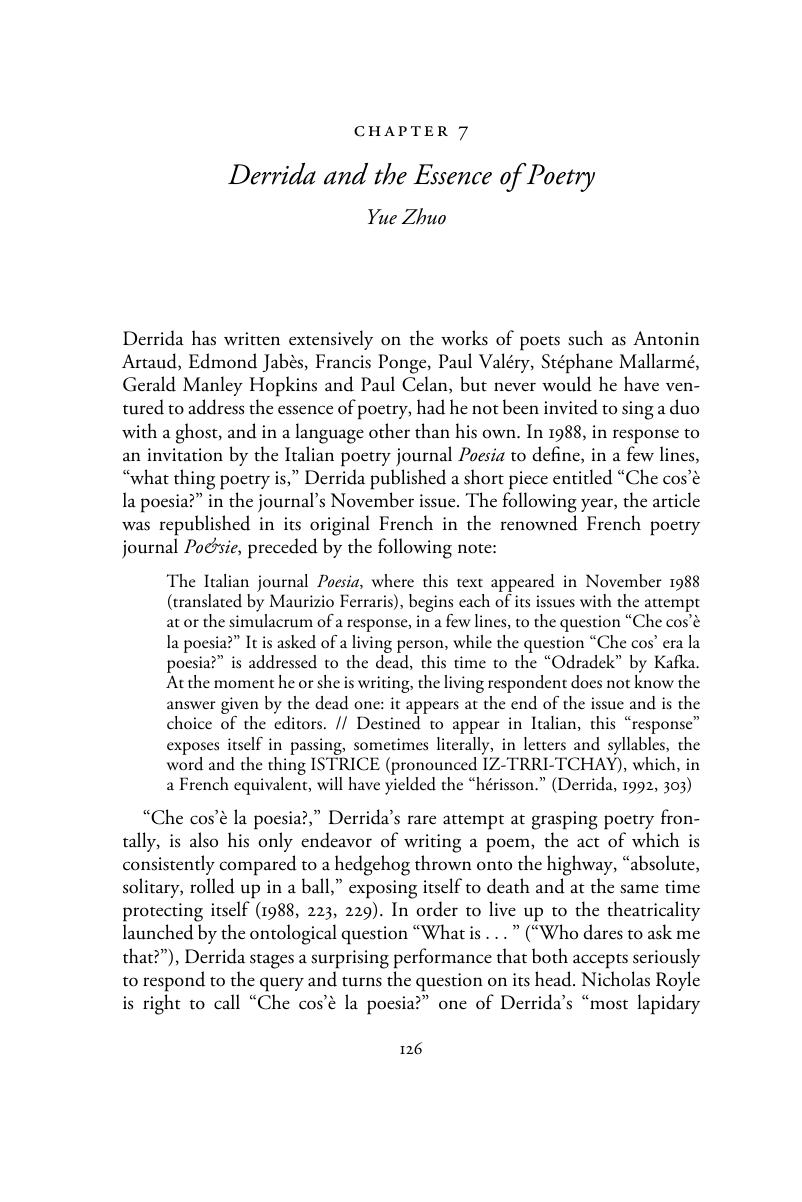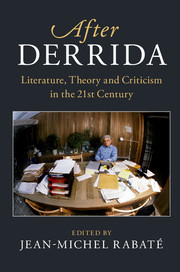Book contents
- After Derrida
- After Series
- After Derrida
- Copyright page
- Contents
- Contributors
- Introduction
- Part I Frames
- Part II Focus
- Chapter 5 Derrida as Literary Reader
- Chapter 6 Broken Singularities (Derrida and Celan)
- Chapter 7 Derrida and the Essence of Poetry
- Chapter 8 From Mallarmé to the Event
- Part III Futures
- Index
- References
Chapter 7 - Derrida and the Essence of Poetry
from Part II - Focus
Published online by Cambridge University Press: 11 May 2018
- After Derrida
- After Series
- After Derrida
- Copyright page
- Contents
- Contributors
- Introduction
- Part I Frames
- Part II Focus
- Chapter 5 Derrida as Literary Reader
- Chapter 6 Broken Singularities (Derrida and Celan)
- Chapter 7 Derrida and the Essence of Poetry
- Chapter 8 From Mallarmé to the Event
- Part III Futures
- Index
- References
Summary

- Type
- Chapter
- Information
- After DerridaLiterature, Theory and Criticism in the 21st Century, pp. 126 - 142Publisher: Cambridge University PressPrint publication year: 2018
References
Works Cited
- 1
- Cited by



